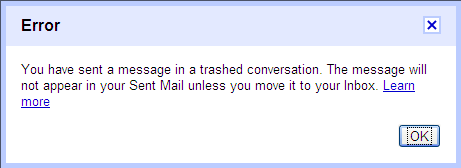Seeing weird behaviour on Marita and Justine’s PCs: trying to access Hotmail, and most other Microsoft web sites, the browser will divert to login.live.com, but not be able to render the page. It appears to load much or all of the data, but never completes.
It’s apparently been doing this for about a week, on both PCs, using a variety of browsers installed on them, including IE9, Firefox 3 and 5 and Chrome — so presumably not a cache problem.
It’s affecting hotmail, microsoft.com, msn.com (which in Australia redirects to iat.ninemsn.com.au/tickler ), even support.microsoft.com. It seems the common ground is they all use live.com/Passport for authentication.
However if you use IE’s Help / Online Support option, it does get to the relevant page. I wonder if that bypasses the authentication stage.
Using View Source, it appears the pages partially load, but do not complete, so do not render completely (eg ninemsn.com.au), or at all in some cases (hotmail.com). Or on some sites (including this blog) it loads the page, but chokes on other content (such as the addthis.com sharing widget).
One PC is running Vista, one XP. Both have the latest patches. One has MS Security Essentials, the other AVG.
They both use the same connection via a router and modem, but other devices (such as a phone browsing via wifi and the same router/modem) don’t have the issue.
Tried turning off the firewall. No luck. Tried removing all of last week’s Windows patches. No luck.
The net connection is okay. A speed test says line speed is 4.75 Mbps.
The affected web sites are fine at my place.
Anybody seeing the same? Any ideas of things to try?
Update 9:05pm. Tried bypassing the wireless router in favour of the modem. It now all works. So it’s some weird-arse setting on the router. Investigations continue.
Update 9:30pm. Would you believe rebooting the modem fixed it? Blargh! This is why they always suggest to turn things off then on again.





 A quick timing test on my main home workhorse computer, which isn’t the fastest in the world, but isn’t the slowest either. (Windows 7, Athlon 64 X2 dual core 4400+ 2300 Mhz, 3 Gb RAM, on a fast ADSL2+ net connection.)
A quick timing test on my main home workhorse computer, which isn’t the fastest in the world, but isn’t the slowest either. (Windows 7, Athlon 64 X2 dual core 4400+ 2300 Mhz, 3 Gb RAM, on a fast ADSL2+ net connection.)